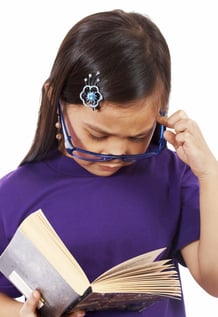
What is Critical Thinking and Why is it Important?
You may be thinking “Hmm here comes another educational trend.” Educators seem to always have some new and pivotal aspect of learning that must be integrated for children to be successful, because if you don’t do what’s new and hip, you’ll be sure to ruin your kid (no, of course not)! Although critical thinking seems to be one of the newer buzz words floating around educational settings, it may be for good reason. Critical thinking has been linked to higher levels of achievement, better emotional intelligence and decision making, and overall life success.
So what is critical thinking? According to Ennis (1996) Critical thinking is the disciplined mental activity of evaluating arguments or propositions and making judgments that can guide the development of beliefs and taking action. Simply, critical think is being able to think about something from various angles and make appropriate decisions. If fostered in children, critical thinking can provide them with the independent tools needed to successfully traverse education.
According to the Foundation for Critical Thinking, there are 5 ways to help children think more critically that can easily be done by parents inside the home:
- Encourage them to be clear. Being clear entails that children ask for explanations and examples about things they do not understand. Confusion should be presented to them as a normal aspect of learning and asking questions should be supported.
- Urge them to strive for accuracy. They should never just accept knowledge at face value or present information without first researching the facts.
- Explain the importance of being relevant. Children should be encouraged to stay on track and only discuss topics that are pertinent to the subject matter that they should be focusing on. They should be encouraged to learn to link different facts and apply them to the situation at hand.
- Ask your child to be logical. Help them to see how things are related, question how they come to conclusions, and ask them to prove how their opinions are correct.
- Lastly, try to promote the idea of your kid being fair and empathic toward others. Fact learning is not the only aspect of education that is important. Learning empathy and being aware of emotions is also an important aspect of critical thinking that will aid your child in making appropriate decisions.
These steps can be applied to children in as early of a developmental stage as kindergarten and continued through their education into adulthood.
Sources:
Ennis, R. H. (1996). Critical thinking dispositions: Their nature and assessability. Informal Logic, 18(2).
http://www.criticalthinking.org/pages/elementary-teachers-grades-k-3/802





